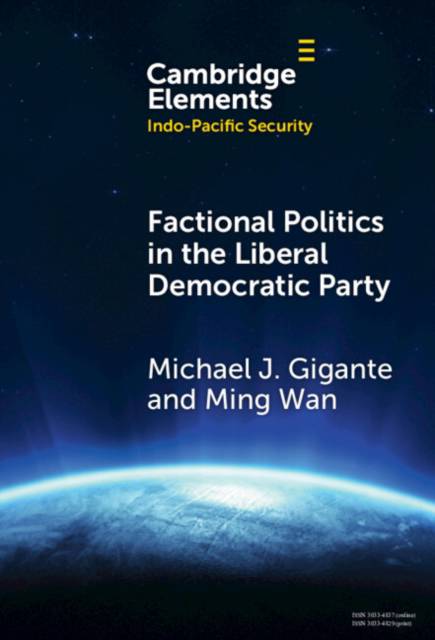
- Afhalen na 1 uur in een winkel met voorraad
- Gratis thuislevering in België vanaf € 30
- Ruim aanbod met 7 miljoen producten
- Afhalen na 1 uur in een winkel met voorraad
- Gratis thuislevering in België vanaf € 30
- Ruim aanbod met 7 miljoen producten
Zoeken
Factional Politics in the Liberal Democratic Party
Explaining Change and Continuity in Japan's Economic Statecraft
Michael J Gigante, Ming Wan
€ 104,95
+ 209 punten
Uitvoering
Omschrijving
What explains change and continuity in Japan's economic statecraft? This Element examines the interplay between factional dynamics in the Liberal Democratic Party (LDP) and Japan's foreign policy through two cases: Japan's unprecedented decision to impose severe sanctions on Russia following its 2022 Ukraine invasion, and its decades-long ASEAN strategy amid political uncertainty and great power competition. The authors find that factional balance or the outsized influence of a large faction facilitates abrupt political-economic shifts, sustained until a similar dynamic triggers correction. Unlike most systems, Japan's intra-party politics do not lead to full leadership turnover, enabling factions to influence policy while empowering non-leadership members to drive change. This dual role strengthens barriers to change, embedding political inertia. Using factional membership data from 1961 to 2024, they argue that factions are a more systematic unit of analysis than political entrepreneurs in understanding the relationship between Japan's domestic politics and foreign policy decisions.
Specificaties
Betrokkenen
- Auteur(s):
- Uitgeverij:
Inhoud
- Aantal bladzijden:
- 82
- Taal:
- Engels
- Reeks:
Eigenschappen
- Productcode (EAN):
- 9781009608992
- Verschijningsdatum:
- 3/07/2025
- Uitvoering:
- Hardcover
- Formaat:
- Genaaid
- Afmetingen:
- 152 mm x 229 mm
- Gewicht:
- 281 g

Alleen bij Standaard Boekhandel
+ 209 punten op je klantenkaart van Standaard Boekhandel
Beoordelingen
We publiceren alleen reviews die voldoen aan de voorwaarden voor reviews. Bekijk onze voorwaarden voor reviews.








